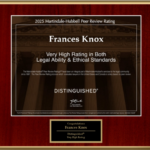[column parallax_bg=”disabled” parallax_bg_inertia=”-0.2″ extended=”false” extended_padding=”true” background_color=”” background_image=”” background_repeat=”” background_position=”” background_size=”auto” background_attachment=”” hide_bg_lowres=”false” background_video=”” vertical_padding_top=”0″ vertical_padding_bottom=”50″ more_link=”” more_text=”” left_border=”transparent” class=”” id=”” title=”” title_type=”single” animation=”none” width=”1/1″ last=”true”]
[column_1 width=”1/1″ last=”true” title=”” title_type=”single” animation=”none” implicit=”true”]
Condemnation Or Eminent Domain
by Edward Knox
Let’s imagine that you’ve lived on a piece of property for forty (40) years. You like living there; you like your land, your home, and you don’t want to face the possibility of change. Let’s suppose that the State of North Carolina, a town or a utility company decides that they want to take some of your property for the purpose of public use. There are very few times that you can stop the taking of property if it is being condemned for “public purposes.” Public purposes include roads, highways, airports, schools, parks, housing projects, and now even for economic improvements.
You have every right to negotiate with the public agency that is taking your land. To do so, you must acquire a working knowledge of land values around you and an appraisal. Appraisals are based on fair market value of the property at the time of the taking, and is based upon a fair price by the owner who wishes to sell, but is not compelled to do so, and a buyer that wishes to buy, but is not compelled to do so. Rarely can you stop the condemnation, but you are entitled to a jury trial to determine the damages.
If you do not agree on an amount with the governmental body or agency, you may be served with a Civil Summons and Complaint. You will need to file an Answer to these documents and you will need to pay particular attention to when the Answer needs to be filed.
Under our state law, a governmental body may take private property for the public good and upon the filing of the lawsuit, must pay into the County Clerk’s Office a sum of money which represents their appraisal. The problem is that governmental agencies employ their own appraisers and the amount paid into the Clerk’s Office may not be in the amount that you are entitled to. You may go to the Clerk’s Office prior to filing an Answer in the lawsuit, in order to withdraw the money, subject to any liens against the real property. This money becomes a minimal amount regardless of the outcome of the jury trial.
There is no formula for determining the amount of money you are entitled. Surveys indicate that property owners usually receive more than they are offered initially, and that is somewhat determined on the following variables:
The attorney you choose as a representative; and
The appraisal service you choose.
Generally, you would need a certified real estate appraisal; however, even a layperson landowner may testify as to what their opinion of the damages, before and after the condemnation, will be.
While the case is pending, interest will accrue at the rate of eight percent (8%) from the date of the taking in addition to the amount determined by the jury. In addition to recovering damages and interest, you will be entitled to receive your costs reimbursement. This would include subpoena costs, deposition costs, and at the Judge’s discretion, expert witness fees.
At the trial, the governmental agency will have its own appraisals and you will be entitled as the property owner to bring forward as many appraisers as you like, and you will be given the opportunity to testify to the damages in your own opinion.
Please recognize that a critical role in these lawsuits is hiring expert witnesses who are trained and certified. The determination of the appraiser’s credentials may be most easily recognized by an attorney, who is familiar with their field of work, and who has at least enough experience with the expert witnesses to know how they have performed previously on similar trials.
So when your property is about to be taken, you do not have to accept the government or agencies first offer. Organize yourself with legal and expert advice. Most attorneys will handle the case for a percentage on amounts recovered above what is originally offered.
H. Edward Knox is the managing partner with Knox Law Center located at 817 E. Trade St., Charlotte, NC 28202. Mr. Knox can be reached at 704-315-2363 or 866-704-9059 (Toll-free). Mr. Knox is a Nationally Board Certified Civil Trial Specialist and has over forty (40) years of civil trial experience.
[/column_1]
[/column]
[column parallax_bg=”fixed” parallax_bg_inertia=”-0.2″ extended=”true” extended_padding=”true” background_color=”” background_image=”http://knoxlawcenter.com/wp-content/uploads/scales-of-justice-extra-white.jpg” background_repeat=”” background_position=”” background_size=”auto” background_attachment=”” hide_bg_lowres=”false” background_video=”” vertical_padding_top=”30″ vertical_padding_bottom=”70″ more_link=”” more_text=”” left_border=”transparent” class=”” id=”REQUEST-CONSULTATION” title=”” title_type=”single” animation=”none” width=”1/1″ last=”true”]
[text_divider type=”single”]
How Can We Serve You?
[/text_divider]
[column_1 width=”1/1″ last=”true” title=”” title_type=”single” animation=”none” implicit=”true”]
[push h=”-20″]
Fields with * are required.
[push h=”20″]
[/column_1]
[column_1 width=”1/1″ last=”true” title=”” title_type=”single” animation=”none” implicit=”true”]
[/column_1]
[/column]






